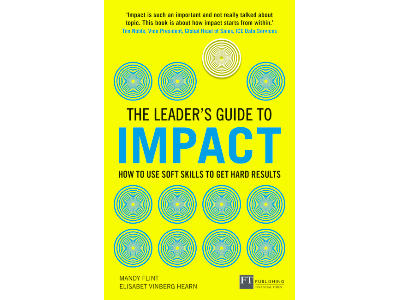
Things change, we all now that. We can also recognise that in times of change we may get distracted, potentially worried (wondering how the change will impact us) and engagement, productivity and results are likely to suffer. This may be normal but it doesn’t have to be that way.
Some of the reasons why we may struggle with change are:
- A fear of the unknown/new
- Change fatigue – “too much change, too fast”
- Not knowing/understanding the predictable stages of change we all go through in times of change (= the change curve)
- Leader steaming ahead of the team, not realizing that others are at a different stage of the change curve
- Feeling as if the change is forced on us or we don’t understand it
- A lot of negativity surrounding the change
Change is inevitable, but you and your team decide if you become the masters of that change or if you let yourself be “run by the change” and feel negatively impacted by it.
“You and your team decide if you become the masters of that change”
Here are 6 proven ways to become a Master of Change:
Communicate
Talk to each other. Discuss the predictable stages we go through in times of change; explore the Change Curve. Understanding this curve makes change easier to deal with; realising that your reactions are natural and predictable, and manageable. Discuss what’s going on; get fears and worries out into the open. One of the main reasons people resist or fear change is when they don’t feel listened to, when they don’t think anyone understands their concerns. Once they know they are seen and heard, it becomes easier to move on, and start finding constructive solutions that can move the change forward. Talk to each other; ask questions like “How are things going? How are you feeling? What can we do?”. The key here is to not get stuck in the emotional stage of the change curve for too long – it’s not a good place to be for too long; it’s not constructive to lament, only to bring out concerns and start to find answers.

“Get fears and worries out into the open”
Tap into strengths
Recognise your own and your team member’s unique talents and strengths; explore together how these can best be used for everyone’s benefits. Someone may have more online experience for example, another be expert at non-verbal communication and a third great at written communication. Share these skills, help each other. It is rewarding for people to be able to do what they are good at and it increases everyone’s results. Allow people to make a difference the best way they can.
“Allow people to make a difference the best way they can”
Look for the positives
Focus your attention on possibilities and opportunities of change. Ask yourself (and others): “What are the benefits of this change? How can we make the most of this? What might be the future (positive) outcome?”
Don’t point a finger
Avoid blame at all cost – it’s never constructive and only drives defensive behaviour, which is detrimental to collaboration and teamwork. When people get defensive they are no longer looking for constructive solutions that can make the change happen quicker and more effectively.
“Avoid blame at all cost”
Share and be creative
No one has all the answers. In change it is more important than ever to work closely together. Encourage the generous sharing of ideas, experience and skills. Be a role model for this yourself. Encourage people to ask for help too – start with yourself; don’t feel you have to have all the answers. No one can have all the answers, it’s as simple as that. Work together to find practical solutions as quickly as possible, thereby getting the team focused on tangible actions and behaviours that can drive results and show progress of the change.
Have fun
Work is supposed to be fun. Maybe not ‘laugh out loud’ fun but fun enough to fuel people’s energy and interest. So allow yourself and others to have a bit of fun – laugh together. One way of doing this is to just enjoy time together; maybe have breakfast together once in a while and appreciate some light-hearted conversations.
“Allow yourself and others to have a bit of fun”
To be a Master of Change is to become friends with change – you start to expect it and in the process you become less and less scared by it. And the more open you are to change, actively looking for the opportunities it brings, the more you become in control of your situation (things aren’t “just happening to you”), You grab your situation with both hands and you make it work. It’s a great place to be.
“To be a Master of Change is to become friends with change”
 About the authors
About the authors
Mandy Flint & Elisabet Vinberg Hearn, award-winning authors of ”The Team Formula”.
Their new book ”Leading Teams – 10 Challenges: 10 Solutions” is out now, published by Financial Times International.
Praise for ”Leading Teams: ”This book is a 21st-century guide on how to build a world-class team. I highly recommend it” Steve Siebold, Founder, Mental Toughness University, Florida USA.







